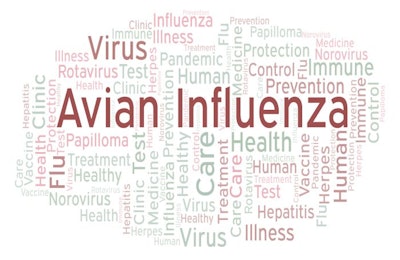
Two further outbreaks of highly pathogenic avian influenza (HPAI) have been confirmed on South African poultry farms. According to the official report to the World Organisation for Animal Health (OIE), the first cases were recorded at a farm in early March in Tshwane city in Gauteng, where more than 300 of the 16,767 birds died.
More than one month later, on April 19, the disease hit another farm in Tlokwe in North West Province. There, around 6,000 of the 7,000 poultry died.
The presence of an HPAI virus of the H5 family was confirmed at both locations. The fate of the surviving birds is not recorded in the report.
The latest outbreaks bring the country’s total since early March in this outbreak series to three, directly impacting almost 52,800 poultry. In early March, the first cases were identified at a farm at Ekurhuleni in Gauteng. Tshwane is located in the same province, and Tlokwe in the Dr Kenneth Kaunda district of the North West, which borders Gauteng.
These latest outbreaks resulted in Botswana, Mozambique, and Namibia banning imports of live birds and poultry products from South Africa.
South Africa’s poultry, ostrich keepers on alert
So far, no HPAI cases have been reported in ostriches in Western Cape Province. However, last week Daily Maverick reported that the latest outbreaks should lead all poultry owners in Western Cape to be alert for signs of HPAI in their birds.
The source reports that in 2011, more than 38,000 ostriches were culled because of the infection. As well as financial costs of around 800 million rand (ZAR; US$55 million), there were widespread job losses. From the around 1,000 commercial ostrich farms in 2011, there are now just 350, according to this source. Numbers continue to fall, so employment opportunities are ever more restricted.
When HPAI returned to the country in 2017, initial outbreaks were in poultry. However, the H5N8 virus variant then spread to ostriches and wild birds in Western Cape. Since then, the coronavirus (COVID-19) pandemic, a prolonged drought, and lost exports have exacerbated the decline of the country’s troubled commercial ostrich sector.
Following the confirmed outbreaks in Gauteng and the North West, all poultry farmers should treat all bird deaths are possible HPAI, according to Eyewitness News. This advice has been issued by the government.
Earlier this week, the South African veterinary authority declared to the OIE that the H5N8 PHIA situation in wild birds had been “resolved.” Starting in June of 2017, this led to the mortality of 6,575 birds and culling of a further 350. The most recent recorded outbreak was in July of 2019, when the virus was detected in some geese at a Norther Cape farm.
New outbreak reported in northern Nigeria
Last week, an outbreak of HPAI was reported in Katsina state, according to Punch of Nigeria. Affected was a farm in the Malumfashi local government area.
According to Leadership News, 20,000 poultry were culled at the affected premises after the owner sold some of the birds. To help prevent further outbreaks, the state government is recruiting 15 veterinarians to support an on-going awareness campaign, as well as biosecurity, disinfection, and quarantine measures.
Katsina state is in northern Nigeria, and borders Niger.
A total of 24 HPAI outbreaks have so far been confirmed in the Nigerian states of Kano, Plateau, Bauchi, Gombe, Nassarawa, Kaduna and Niger.
HPAI situation elsewhere in Africa
HPAI virus variants H5N1, H5N6, and H5N8 with pandemic potential have been circulating in this region since 2017, according to the United Nations’ Food and Agriculture Organization (FAO).
As well as H5 in South Africa, the other recent development was the first detection of the H5N1 HPAI virus in Mali. So far, three outbreaks in poultry have been confirmed in this West Africa state.
During the current wave — since October of 2020 — the H5N1 virus variant has also been detected in Mauritania, Niger, Nigeria, and Senegal.
One month ago, a total of seven influenza A(H5) cases in poultry workers from two states were reported in Nigeria. Six of these were asymptomatic, and one showed mild symptoms. This was the first evidence of human infection with this virus group in Africa since 2007, according to FAO.
In North Africa, two HPAI outbreaks have been reported in poultry in Algeria
View our continuing coverage of the global avian influenza situation.
















